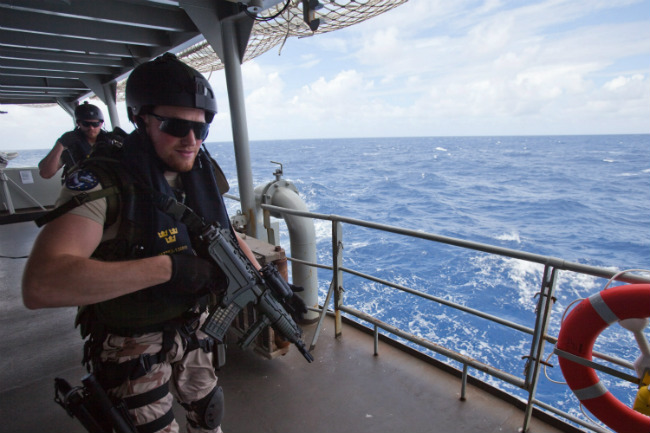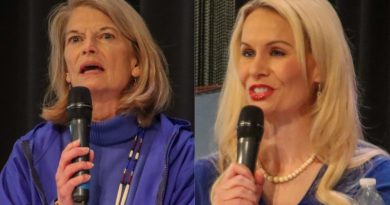Sweden’s coalition split over defence spending
 As the annual conference on Swedish security wound up in the northern community of Sälen, a crack within the center-right government seems to have emerged.
As the annual conference on Swedish security wound up in the northern community of Sälen, a crack within the center-right government seems to have emerged.
Society and Defence, or “Folk och Försvaret” is the annual conference bringing together the Swedish security and defence policy community, from politicians and the military to non-governmental organizations, as well as observers from abroad.
But this year’s meeting, which just ended in the ski resort community of Sälen in the province of Dalarna, seemed to expose a number of cracks within the minority center-right government. The split seems to run between the conservative Moderates, and their three coalition partners, the Center, Liberals, and Christian Democrats.
These three parties think the annual defence budget of around 30 billion kronor ($4.6 billion) a year ought to be increased, and the Liberal defence spokesperson Allan Widman has said 3-4 billion (about $500 million) more a year is needed to finance the new operational defence strategy, with its professional soldiers and expensive new equipment.
But since the conservative Moderates by themselves are bigger than the other three parties combined, their view usually seems to predominate, and they hold the defence, foreign, and finance ministries.
Staffan Danielsson is the defence spokesperson for the Center party. He tells Radio Sweden there are many arguments for an increase in the defence budget, and there’s support for this as well from the Christian Democrats and the Liberals. But the minister of defence is against. He thinks this is because she doesn’t have enough influence with the finance minister.
But Defence Minister Karin Enström plays down the differences among the government parties. “I can say,” she told us, “that we, the government, are in agreement. We have presented seven straight defence budgets, and we put a priority on defence.”
The current debate on defence was awakened when the Supreme Commander of the Swedish military, Sverker Göransson, told a newspaper recently that Sweden would only be able to defend itself against an outside attack on a limited part of the country and for just one week.
At the time, defence minister Enström said this was a reasonable ambition. But the Liberals called the statement a political bomb, and said Swedish defences need to be stronger than that.
This means more military spending. The Center Party’s Staffan Danielsson says this would have the additional virtue of contributing to increased stability in the Nordic region.
He says Sweden must share responsibility for Nordic peace and stability, as much as the other countries in the region. But this, he says, is no longer the case. Twenty-five years ago, the Swedish defence budget corresponded to 2.5 percent of the gross national product, and led the region. Today, he says, it’s down to 1.2 percent, the lowest among the Nordic countries.
Sweden is not doing its share, and an increase in military spending is necessary, Danielsson says.
The largest opposition party, the Social Democrats, are even bigger than the conservative Moderates, and are also generally against increasing the defence budget. But they don’t reject this completely.
Social Democrat defence spokesperson Peter Hultqvist says they want to wait until the Defence Committee, in which all the political parties are represented, presents its analysis of the international situation.
“We think the economic level in the future must be seriously discussed after the defence committee has finished its work,” he tells us. “When we have established how we see the security situation in the world, and when we have drawn our conclusions for Sweden’s defences.”
That analysis is scheduled to be finished during the summer.
For more stories from Radio Sweden, click here



